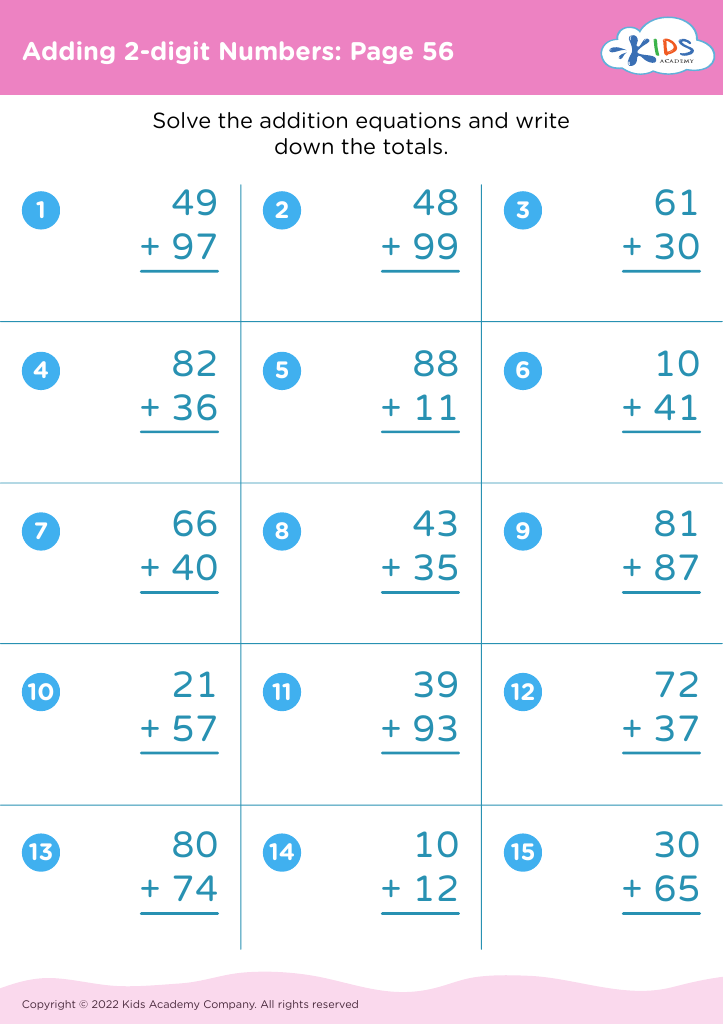Boost critical thinking Addition & Subtraction Worksheets for Ages 7-9
3 filtered results
-
From - To
Explore our "Boost Critical Thinking Addition & Subtraction Worksheets" designed for children aged 7-9. These engaging worksheets go beyond basic calculations, encouraging young learners to apply their reasoning and problem-solving skills in practical contexts. Each activity is crafted to challenge students, fostering not only their math skills but also critical thinking abilities. From word problems to interactive puzzles, our resources promote a deeper understanding of addition and subtraction concepts. Perfect for both classroom and home use, these worksheets make learning math fun and stimulating. Equip your child with the skills they need to succeed through challenging and enjoyable exercises!
Parents and teachers play a crucial role in cultivating children's critical thinking skills, especially in foundational subjects like math. For children ages 7-9, focusing on addition and subtraction goes beyond rote memorization; it equips them with problem-solving abilities essential for lifelong learning. Understanding these concepts enhances children's ability to analyze and approach problems logically.
Boosting critical thinking in math encourages children to explore different strategies for solving problems, fostering creativity and flexibility in thinking. As they learn to dissect multi-step problems, they develop perseverance and confidence in their abilities. Instead of merely arriving at the correct answer, children learn to ask questions like, "What other methods could I use?" or "Why does this approach work?" Such inquiries deepen their comprehension and prepare them for more complex mathematical ideas in the future.
Furthermore, these skills are transferable to daily life situations, teaching kids to make informed decisions. Ultimately, supporting critical thinking in addition and subtraction not only strengthens their math proficiency but also empowers young learners to become analytical thinkers capable of tackling real-world challenges. By emphasizing these elements, parents and teachers enrich children's educational experiences and lay the groundwork for successful, independent problem solvers.



















